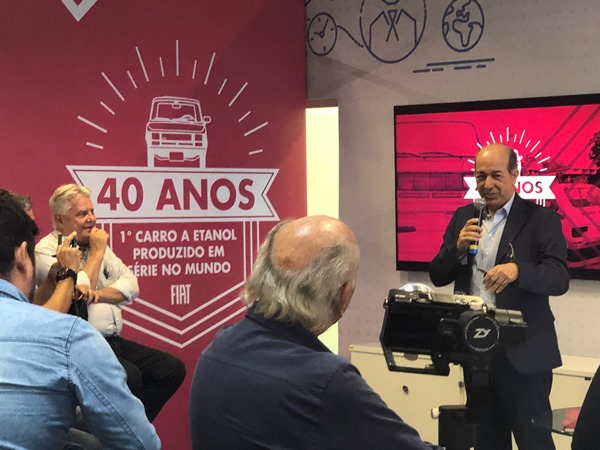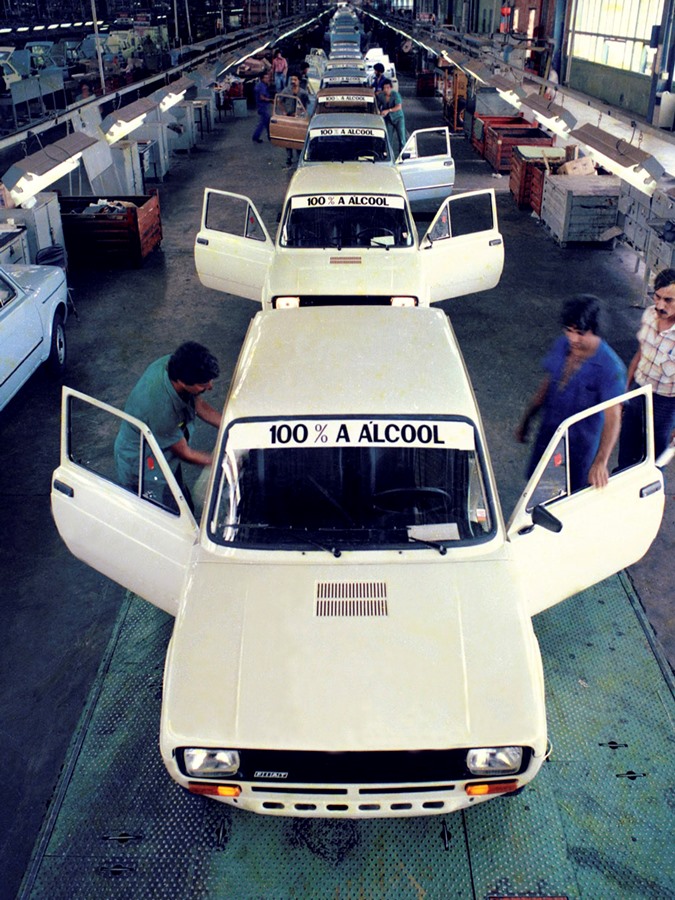FCA defends the use of ethanol and honors historic car

The preservation of history is not just a matter of respect for memory. When history is consistent, the past can – and should – provide inputs for future building. It is the case of FCA. To celebrate the 40th anniversary of the launch of the Fiat 147 – the first ethanol car manufactured on serial production in Brazil – the company’s communications department organized an event for 50 leading auto journalists. After years held at the Ministry of Finance in Brasilia, the first car is now part of the Fiat classic collection.

Bringing the Fiat 147 back to the car company – a piece that is virtually original and without any further restoration –, brings back the history of FCA in Brazil. Moreover, the occasion marked FCA’s current and future positioning in valuing the use of ethanol. It is an example of using business memory for company business strategies.
“Knowing, respecting, and researching the past is critical to helping you create strategies for the future. We use this occasion to celebrate the 40th anniversary of the first ethanol car and to communicate to stakeholders how our strategy for the future is grounded in what we have built in the past,” said Fernão Silveira, director of Corporate Communications and Sustainability for Latin America at FCA.
Strategically, this rescue to the company’s memory demonstrates the mobilization of FCA in favor of the use of ethanol to combat global warming, among other objectives. From an economic point of view, fuel is a cost-effective and efficient alternative because Brazil already has a consolidated ethanol production, logistics, and distribution platform. Finally, from a sustainability point of view, this is a fuel with much less environmental impact than oil products, emerging as an important alternative in the urban mobility debate.
Fiat was the first automaker to launch an ethanol vehicle as a series in the world. It was a response to the oil crisis that all countries, including Brazil, faced in the late 1970s. In a joint effort, an ethanol-powered engine was developed that met the needs of the government at the time to develop an alternative to gasoline.

COMENTÁRIOS:
Destaques
- Escola Aberje leva comunicadores para Amazônia em expedição imersiva
- Encontro de líderes debate responsabilidade do setor empresarial e papel da comunicação na COP30
- Aberje realiza reunião presencial com Comitês de Estudos Temáticos em São Paulo
- A comunicação é forte em mercados em que as associações são fortes
- Aberje participa do painel de entidades no 19º Congresso da Abraji
ARTIGOS E COLUNAS
Marcos Santos Maratona da vidaMônica Brissac Thought Leadership: marca pessoal x reputação corporativaLetícia Tavares Liderança comunicadora: um tema sempre atualHamilton dos Santos Comunicação é estratégica na economia contemporâneaCarlos Parente Um salto ornamental para mergulhar no pires



























